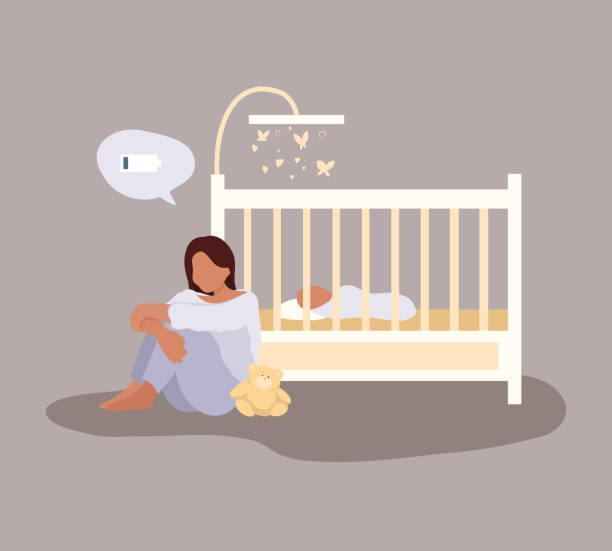
Introduction: Mental Health in Parenting
Parenting is often described as the ultimate rollercoaster ride—filled with ups, downs, unexpected twists, and the occasional scream (and not just from the kids!). It’s a mix of joyful milestones, messy moments, and a whole lot of “I’m winging it” feelings.
But here’s the thing: while we celebrate the adorable giggles and milestone photos, we don’t talk enough about the real side of parenting—mental health struggles. Yep, it’s not all sunshine and rainbows, and that’s okay.
Mental health isn’t just about feeling happy or sad. It’s about how we manage stress, emotions, and even the chaotic mess of daily life. And guess what? When parents are mentally healthy, it’s like giving their family a superpower. They’re more patient, present, and better equipped to handle life’s curveballs.
But, I feel like today this issue is often overlooked by people. We are quick to judge and we tend to be very critical. Even the slightest mistakes are enough to label parents as “unfit”. While it is a fact that many parents tend to be unyielding in our country , it is not correct for us to generalize it to even the ones who are trying to do better. We tend to forget that for most people, it is also their first time being parents and they are learning too. So as long as they are open to correcting harmful behaviors , I think we need to cut them some slack.
Common Mental Health Challenges for Parents
Parenting can feel like juggling knives—except the knives are your responsibilities. Here are the most common mental health challenges parents face:
1. Stress and Anxiety
Why It Happens:
Juggling work, kids, house chores, and the “perfect parent” pressure can be overwhelming. Sleepless nights, financial worries, and the constant “Am I doing this right?” loop don’t help.
Signs to Watch For:
- Feeling constantly on edge
- Irritability over small things
- Restlessness and racing thoughts
- Physical symptoms like headaches and stomachaches
Long-Term Effects:
Chronic stress can lead to burnout and affect how you connect with your kids. It’s like trying to pour from an empty cup—there’s nothing left to give.
Pro Tip: Take a breather. Even a 5-minute coffee break can work wonders.
2. Depression (Yes, Dads Feel It Too!)
Postpartum Depression (PPD):

When we talk about the joys of parenthood—tiny toes, baby giggles, and those heart-melting first words—it’s easy to forget that behind the scenes, many parents are fighting battles that aren’t as cute as baby photos.
Take postpartum depression, for example. It’s not just about feeling a little “off” after having a baby. It’s a real, serious condition that can affect up to 48.5% of women in India and over 25% of women worldwide and that’s not because they’re not “handling it” well—it’s because their brains are dealing with a rollercoaster of hormones, sleep deprivation, and the pressure of being a perfect parent.
But here’s the twist—paternal depression is a thing too. Yep, dads feel it too, and it’s more common than you’d think. Studies show that up to 10% fathers experience symptoms of depression after their child is born. It’s okay to admit that it’s tough. Parenthood is a wild ride, and no one has it all figured out—especially not on little sleep and with a baby who thinks 3 AM is prime party time.
Signs to Watch For:
- persistent sadness
- loss of interest in activities
- fatigue and sleep disturbances
- anxiety and excessive worry
- feelings of guilt or inadequacy
- difficulty bonding with their child.
Remember: Asking for help isn’t a weakness—it’s a superpower.
3. Parental Burnout
What’s Burnout?
It’s that “I’m done” feeling, where even getting out of bed feels like climbing Mount Everest. Burnout happens when the demands of parenting exceed your emotional energy.
Signs You Might Be Burned Out:
- feeling overwhelmed
- lacking patience and irritability
- sense of loss of personal identity.
- Parents might feel like they are constantly “on” without any respite, which can lead to frustration and resentment.
How to Fight Back:
- Set boundaries
- Don’t be afraid to ask for help
- Take time for yourself—take a walk , read your favorite book in a cozy corner of your house or just hide in the bathroom for 5 minutes with chocolate.
What Makes Mental Health Issues Worse?
1. Social Isolation
It’s tough but creating a supportive network like joining a parenting group, attending workshops, or simply scheduling regular meet-ups with friends can make a huge difference.
2. Financial Stress
Money worries regarding job stability, childcare costs, and future expenses can sneak in and add to the mental load. Budgeting, talking openly with your partner, and accessing community resources can help.
3. Relationship Stress
Marital conflicts can drain your mental health.And for those who co-parent, differences in parenting styles can lead to further stress.
Open communication and respect for each other’s perspectives is key to maintaining a healthy relationship.
How to Get Support (Because You’re Not Alone)
When to Seek Help:
If you’re feeling overwhelmed, sad, or anxious most days, it’s okay to reach out. Mental health professionals are here to help—no judgment, just support.
Types of Support:
- Therapy – cognitive behavioral therapy, family therapy, or child-parent intervention therapy.
- Support groups (talking with others who “get it” is powerful)
- Medication (sometimes it’s needed, and that’s okay!)
Self-Care Tips:

- Take a “me time” break – It could be a warm cup of tea, a hot shower, or simply sitting quietly with your eyes closed for 5 minutes.
- Prioritize sleep
- Laugh more! ( Even if you fake laugh, it works wonders!)
- Listen to Music: Play your favorite tunes, whether it’s calming melodies or energetic beats—music can be a powerful mood booster.
- Practice Gratitude: Reflect on three things you’re grateful for each day—it shifts your focus to the positive.
- Enjoy a Hobby: Whether it’s reading, painting, cooking, or gardening, doing something you love can be incredibly therapeutic.
- Journaling: Write down your thoughts, feelings, or even random things that come to mind. It’s a great way to clear your head.
- Hydrate & Nourish: Drink water and have a healthy snack. Sometimes, our bodies just need proper fuel to feel better.
- Take Deep Breaths: Just a few deep breaths can calm your nervous system. Inhale for 4 seconds, hold for 4, exhale for 4—repeat.
Strategies for Promoting Mental Health in Parenting
A. Developing Healthy Routines
1. Establishing Daily Routines
Creating a daily routine can provide structure and predictability. Families thrive on consistency, which can ease anxiety for both parents and children.
2. Incorporating Mindfulness Practices
Mindfulness practices, such as meditation or deep breathing exercises, can help parents manage stress and promote a calmer family environment.
Even a family activity like cooking together goes a long way! ( And an added bonus – it also creates deeper bonding between parents and kids!)

3. The Role of Physical Activity
Regular physical activity is crucial for mental health. Involve your kids too!
B. Enhancing Communication Skills
1. Cultivating Open Dialogue with Partners and Children
Open dialogue fosters trust and emotional connection. Parents should encourage their children to express their feelings and ensure they feel heard.
2. Employing Effective Conflict Resolution
Conflict is a part of family life. Approaching disputes with empathy and patience can lead to positive outcomes and teach children valuable lessons in handling disagreements.
3. Encouraging Emotional Expression
Teaching children to recognize and express their emotions sets a foundation for emotional intelligence. Suggesting journaling or creative outlets is a great way to encourage expression.
C. Creating a Supportive Home Environment
1. Fostering a Positive Family Culture
Creating a household that emphasizes kindness, respect, and collaboration will nurture healthy relationships. Small gestures, like practicing gratitude as a family, can enhance overall emotional health.
2. Providing Educational Resources for Emotional Health
Engaging in conversations about emotional health and providing resources can empower children. Books and educational materials can make important discussions about feelings accessible.
3. Encouraging Family Outings and Activities
Spending quality time together as a family helps strengthen relationships and creates lasting memories. Regular outings, whether big or small, contribute to a positive family atmosphere.
Final Thoughts
Parenting is hard, and mental health struggles are common but often overlooked. The key takeaway? You’re not alone, and it’s okay to ask for help.
So, let’s be kinder to ourselves and each other. Because being a parent is tough enough without the added pressure of feeling like we have to be perfect.
And if you’re reading this thinking, “Wow, I really needed to hear that”—you’re not alone. You’ve got this. 💙
